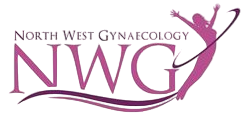What is it?
Excessive hair growth (also known as hirsutism) is the inappropriate growth of facial and other body hair in women, often in a male-type pattern. What constitutes excessive hair growth differs markedly between different women and there are no simple ways of assessing this.
Doctors will usually undertake the investigation and treatment of any woman who feels sufficiently troubled by the problem to seek medical help.
What causes it?
Most cases of hirsutism are not due to any abnormality (so-called constitutional hirsutism). Women from certain ethnic groups (typically Southeast Asian groups) tend to have heavier growth of facial and body hair without any underlying cause. Excessive facial and body hair may also run in certain families without cause. The commonest abnormality that gives rise to this problem is ‘polycystic ovary syndrome’ and so it may coexist with difficulty conceiving. Other conditions include abnormal hormone production from the thyroid or pituitary gland, and swellings (growths) of the ovaries or adrenal glands. Some medicines such as steroids can cause excessive growth of hair.
Is it harmful?
This problem may be very distressing for its sufferers. It is not unusual for it to cause major disruptions to their lifestyle. A lot of time, effort and money may be expended in attempts to find a solution.
How is it investigated?
The first step is a detailed history and examination. The examination aims to ascertain the extent of the problem as well as search for possible causes. Blood tests are performed to measure levels of hormones produced by the ovaries, adrenal and pituitary glands. Ultrasound scans of the tummy and pelvis are also performed to search for swellings.
How is it treated?
The treatment of hirsutism is as individual as the woman’s perception of her condition. Some women may have an altered perception of themselves leading to an exaggerated view of the problem. Counselling is often useful in helping such women to change their perception of self. The treatment of any underlying cause will help to stop or even reverse the process.
Specific treatment of hirsutism is a long and arduous process that involves the use of hormone tablets. The simplest form of this involves use of the oral contraceptive pill in appropriate women. Hormone preparations that contain medicines that block the action of the male hormone (androgen) are particularly useful. This hormone treatment may need to be continued for more than a year to notice any benefit. Induction of ovulation in women with polycystic ovary syndrome who may be trying to conceive can help to halt or even reverse the condition. Some other useful medicines include certain anti-ulcer and water tablets.
Some women may require cosmetic treatment initially or while awaiting the effects of the medicines. This may be in form of electrolysis, waxing, plucking or shaving. These have varying degrees of success, may be expensive, and could cause unwelcome bumps.
